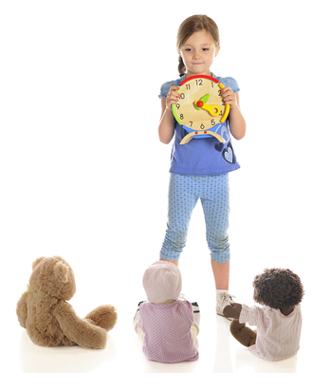
Expecting to Teach Enhances Learning, Recall
Student mindset has big impact on learning, study finds
August 8, 2014—"When compared to learners expecting a test, learners expecting to teach recalled more material correctly, they organized their recall more effectively and they had better memory for especially important information," said lead author John Nestojko, PhD, a postdoctoral researcher in psychology in Arts & Sciences at the Washington University in St. Louis.
The study, published recently in the journal Memory & Cognition, is based on a series of reading-and-recall experiments in which one group of students is told they will be tested on a selection of written material, and another group is led to believe they are preparing to teach the passage to another student. In reality, all participants were tested, and no one actually engaged in teaching.
Findings suggest that simply telling learners that they would later teach another student changes their mindset enough so that they engage in more effective approaches to learning than did their peers who simply expected a test.
"The immediate implication is that the mindset of the student before and during learning can have a significant impact on learning, and that positively altering a student's mindset can be effectively achieved through rather simple instructions," Nestojko said.
Study participants who expected to teach produced more complete and better-organized free recall of the passage and, in general, correctly answered more questions about the passage than did participants expecting a test, particularly questions covering main points.
"When teachers prepare to teach, they tend to seek out key points and organize information into a coherent structure," Nestojko said. "Our results suggest that students also turn to these types of effective learning strategies when they expect to teach."
The study suggests that instilling an expectation to teach may be a simple, inexpensive intervention with the potential to increase learning efficiency at home and in the classroom.
"What I find most intriguing about this research is that learning was significantly impacted even though we did nothing more than alter participants' expectations prior to learning," Nestojko said.
An important takeaway for teachers is that it appears students often need to be guided in how to discover strategies that are optimal for learning.
"Despite many years of active involvement in both formal and informal learning activities, students do not necessarily employ activities that best foster learning—even though, as our results indicate, those strategies are in their "toolbox" of effective learning strategies," said co-author Elizabeth Bjork, PhD, professor of cognitive psychology at the University of California, Los Angeles.
"Worse yet, telling students to prepare for a test does not lead them to select from this toolbox those strategies that would lead to their best performance," she says.
GERRY EVERDING
ARTICLE:
"Expecting to teach enhances learning and organization of knowledge in free recall of text passages," John F. Nestojko, Dung C. Bui, Nate Kornell, Elizabeth Ligon Bjork in Memory & Cognition (2014).
